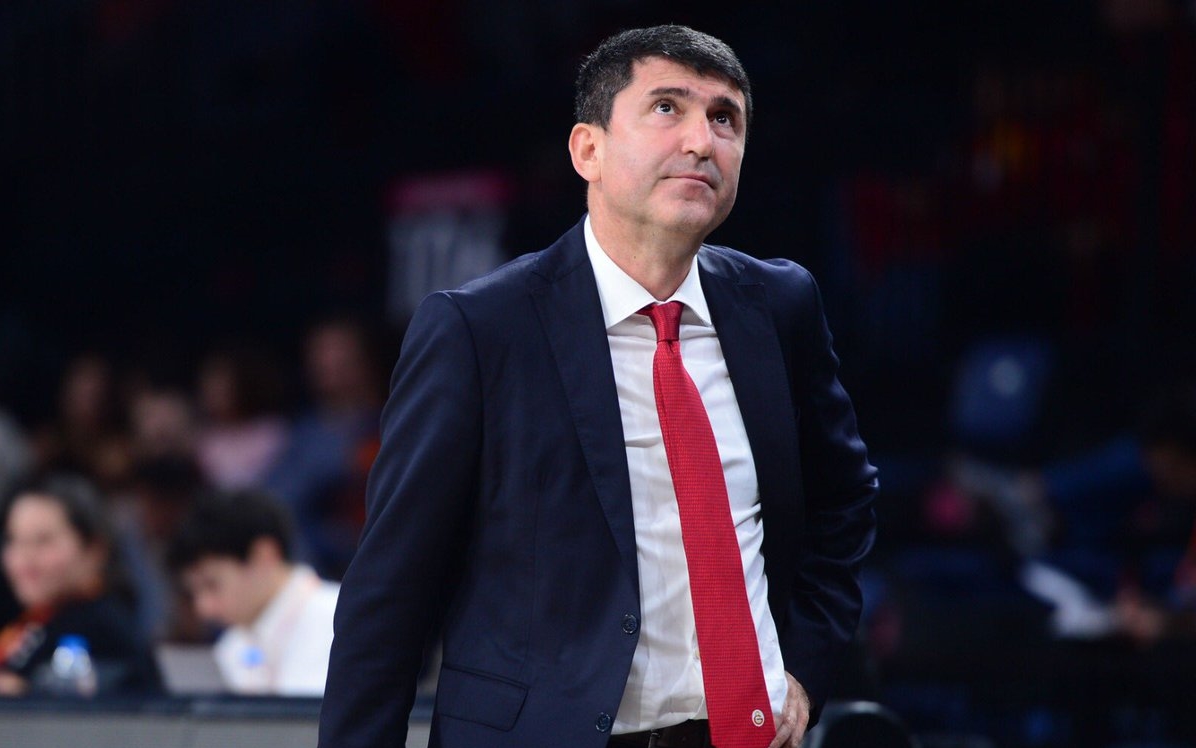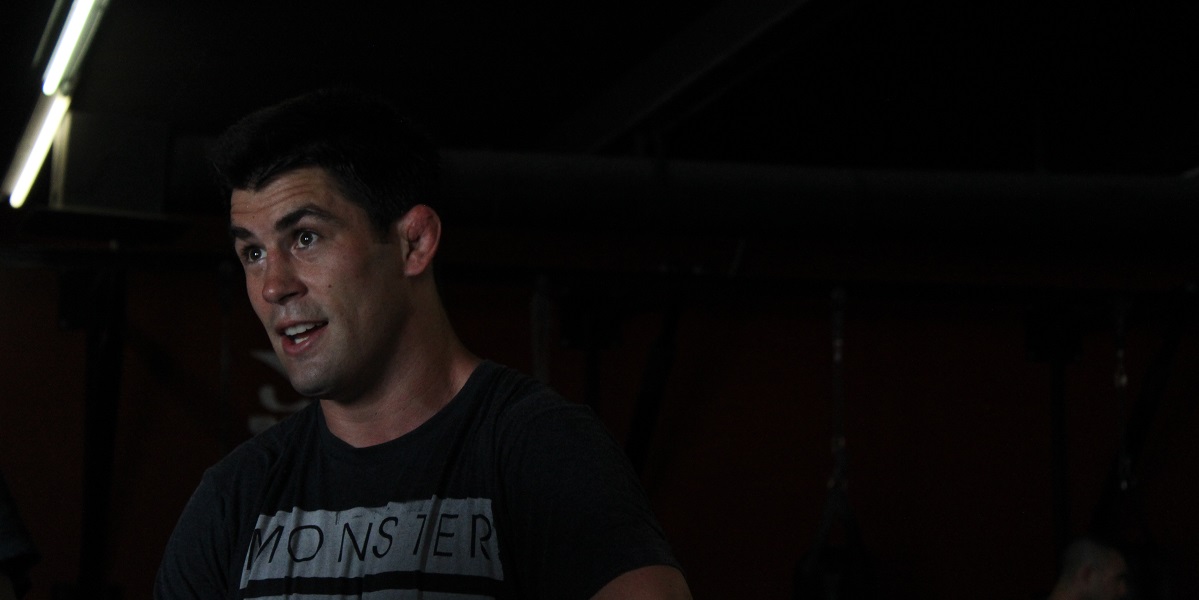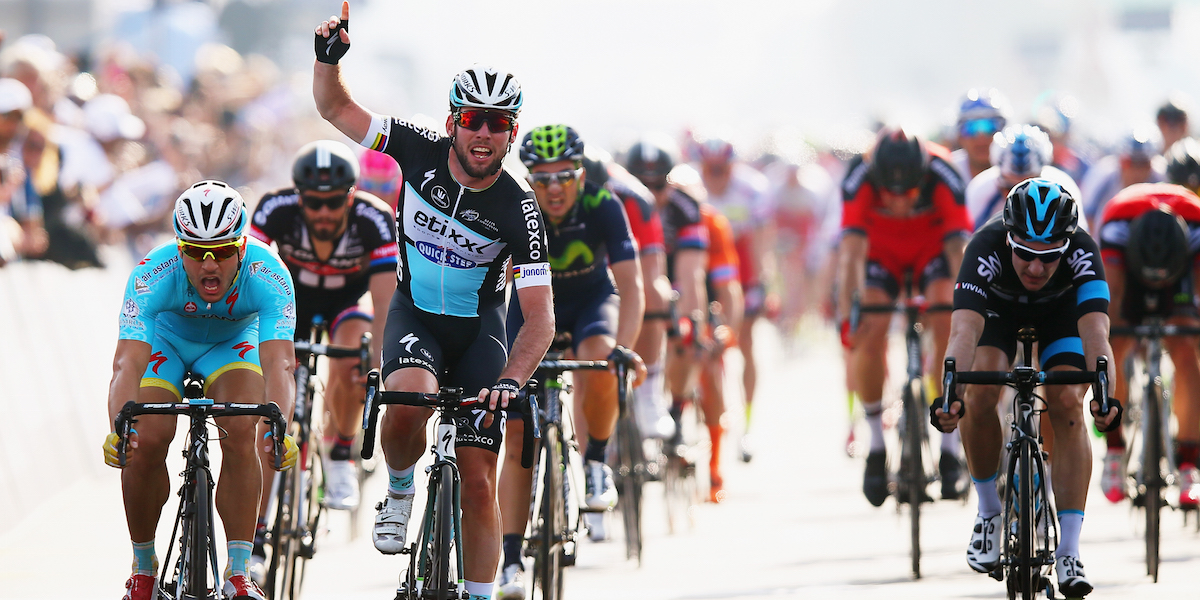*Published in May 2015 issue.
Nein Quarterly is a Twitter phenomenon who specializes in philosophy; and yes, we know that sounds odd. His real name is Eric Jarosinski: An American who spent years researching German culture. In 2012, he makes a decision and sets up a twitter account. Juggling with the German and English words, Jarosinski tweets about life, depression and The Frankfurt School. We got together with Nein Quarterly, following his conference in Istanbul (January) and had a talk about philosophy and the “ball” itself…
You grew up in a very small town in Wisconsin, a state that has a proud history in many sports. Did you follow any?
Yes, a little bit. Primarily, football – the Green Bay Packers. This year they did well and it was quite exciting, but in the end, they lost. (And I missed the end of the game because I was flying to Istanbul.)
Which position did you play in football?
Well, that’s the funny thing about it. I was supposed to be a receiver, someone who catches a pass from the quarterback. But the coach gave me a number of a player who is not allowed to catch the ball. I was officially “ineligible to receive a pass.” So, at the very beginning, I knew I was not going to be playing very much. Maybe it was a good thing that I broke my arm in the very first week of practice. That was the end of my athletic career and explains why I am a Twitter aphorist today. Otherwise, I would be playing for the Packers.
Have you ever been interested in baseball?
I only began following baseball in Philadelphia, where I lived for the last several years before moving to New York last fall. I was never interested in baseball until I started going to a few Phillies games with a good friend of mine who explained it to me a lot better. When you don’t know baseball, you think it’s all about hitting. But once you understand it better, you realize it’s more about pitching. As a casual observer, you don’t understand the drama of baseball, how important pitching it is. There is a lot of psychology involved, a lot of guessing, but it’s also treated like a kind of science. In American baseball, everything is measured precisely. But in the end, it still comes down to ability, psychology, chance, and theatre. I’ve come to appreciate that much more. But I never played much of anything myself. I was on the basketball team in junior high and very briefly on the football team in high school.
“Crisis” is one of your favorite words. In sports, everyone seems to be saying that baseball is in crisis or decline. But then some pundits add that people were already saying that 100 years ago. Has baseball always been in decline? How do you look at that? It’s a philosophical issue, isn’t it?
That’s an interesting question. I think that baseball sometimes has difficulty marketing itself. It’s often a very long game, without much action. Especially if you have a lot of fans who are not well-informed, just like I was (and, honestly, still am), they are just waiting for the hits and want to see a home run. Once you know more about the game, however, what was boring often becomes more interesting. You pay attention to subtext and follow a larger narrative about various players that’s being created day after day in the course of a very long season. Long story short: baseball will be in a crisis if it can’t get people to understand what is interesting or exciting besides hitting. But I actually think baseball is doing pretty well in many places because people like going to games. They enjoy being there, and stadiums have been designed to focus on a larger mythos and historical narrative that people want to be a part of. That might be a lot of what keeps baseball in business. Not what happens on the field, but the experience you have of watching it. And the memory of those you’ve watched it with. There is a lot of tradition simply in going to the ballpark. It’s about the experience of going to the game rather than just the game itself.
They are marketing nostalgia, right? They are marketing memories of the game?
Definitely. And you can ask yourself if marketing nostalgia is a sign of crisis because baseball is a game of the past. Or you might say that nostalgia actually succeeds in tapping into what is most alive about the game: the complex dynamics of fantasy, identity, and tradition.
In general, though, I do think that the length of the game is a potential problem, especially when it comes to television. As for me, I really only like going to games or listening to them on the radio. I prefer to imagine what’s happening rather than seeing it on the screen. And I like the radio commentators. They always talk about other things besides the game, just because they have to fill so much time. And I often listen when I’m taking a nap. So I drift in and out of sleep over the course of nine innings, which is my favorite way to follow a game.
What about soccer?
I’ve gone to SC Frieburg games primarily when i was studying in Germany in college. I went to a few Eintracht Frankfurt games too. But I do follow the European and the World Cup — typical for a fair-weather American soccer fan. I get into it, but am then happy to forget it for another couple of years.
You obviously interested in German culture know Germany very well. In the past, people would always say “German football is boring.” But right now, they say it’s fun. In the past, people would always say German philosophy and novels are boring too. Did this last World Cup illustrate identity changes for Germany, in general?
Well, German philosophy is probably just as little fun as it was in the past. (At least I hope so.) But maybe we’re reading it in some new ways. (Or, again, at least I hope so.) People are allowing themselves to do more with ideas that they might have once found quite intimidating and are trying to test and play with tradition. Maybe there’s something similar going on in football, I don’t know. You’d have to ask a real German football philosopher — otherwise known as a real German football fan.
Just like you, ha?
No, I just watch football to share in the collective neurosis. And drink beer.
I’m a huge Werner Herzog fan, like you. Let’s imagine Werner Herzog directs a game and narrates in same time? Would you want to watch that?
Yes. But only if it were a 90-minute narration of a penalty kick. In extreme slow motion. As the ball bounces off the goal post.
Let’s play the game. Here are some quotes from famous sports legends. Which school of philosophy might each one represent? And how would you interpret them?
Gary Lineker: “Football is a simple game. Twenty-two men chase a ball for 90 minutes and at the end, the Germans always win.”
Radical Determinism. Meaning: Radical Determinism is always wrong. Except when it isn’t.
Eric Cantona: “When seagulls follow the trawler it is because they think sardines will be thrown into the sea.”
Materialist Metaphysics. Meaning: Never trust a hungry seagull.
Jose Mourinho: “Please don’t call me arrogant, but I’m European champion and I think I’m a special one.”
German Idealism. Meaning: Philosophy is not some sort of game to be won. It is a game only to be lost.
Johan Cruyff: “Sometimes something’s got to happen before something is going to happen.”
Post-Empirical Neopositivism. Meaning: Remember to visit the restroom at halftime.
Marco Pantani: “I love the mountains, but in that moment of exertion, I’m filled with deep hatred. So I try to shorten my suffering”
Postmodern Neo-Stoicism. Meaning: Why just get a yellow card, when they also have red?



